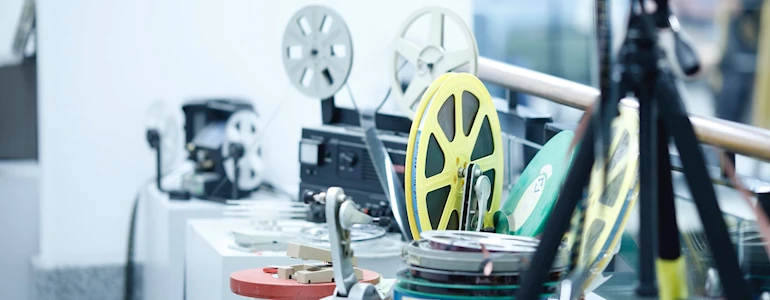
Within the whirling instancy of 21 st century information technologies, communicational innovations in relation to “global villagers” have been in the upward raising constantly and compile an enormous integrated media channel of smart phones, web blogs, tablets and vice versa.
What obviously inevitable here is to search for some fundamental features of communication and media history up to the present, to investigate the reproduction of reality and bring some solutions, to comprehend social and individual impacts of visual media, television and cinema.Here comes the educational institutions on the scene. They are vitals for human beings, man or woman; They mean everthing for them either with the quality of teaching staff or the equipment provided to practise in the courses.
As parallel to the tecnological improvements in communication and media business, it is also inevitable for higher education institutions to set up fundamental groundwork for professional television and radio studios or 3D labs or editing laboratories to practise. Moreover, a professional radio or television studios also require latest system cameras, or decoration material or costumes, technological facilities such as green box,or drone, editing and montage equipments, recording applications, aural and visual effect programmes and applications as well. In order to get a professional outcome, undergraduates should be educated in professional environments; When they achieved their degree and ready for the big run for life, they should be at least two steps further than their colleagues are.
A higher education institution of present day should provide its undergraduates an idealistic and experienced teaching staff and technologically professional groundwork for better career opportunies as IMU did for Faculty of Communication for Radio Television & Cinema Department.
Radio Cinema and Television Department is going to accept students for the 2017-2018 Academic year. Educational policy is focused on practice and applicational courses,as well as theoretical courses as a base of practices. Radio Television and Cinema Department aims to provide professionals for sectoral institutions or organizations,who are conscience of communication and media ethics, social responsibilities and social role of their status in searching of reality and manipulation in media business.
Some of the obligatory or elective courses provided by the RTC department are Communication Sciences, Radio Television Broadcasting Programming,3D Practises, Turkish Cinema, History of Communication and Media, Hate Speech in Media, Media Literacy, Short Filming, Editing Workshops, Radio Studio Practises, Desktop Publishing, Voice Acting(dubbing), Turkish Phonetic & Diction, World Cinema, Bollywood, Far East Cinema, Auteur Cinema, Visual Culture, After Effects, Social Genderism, Cinema and Literature, Cinema and Mythology, Aesthetic Photography,Dramaturgy, etc. Courses are mostly in Turkish, but there are courses in English for Erasmus Exchange Students, as well.
The faculty has biletaral agreements with bordercross Erasmus universities for exchange students. During the academic year 2017-2018, the department will also have its own bileteral agreements for Radio Television & Cinema Students for Erasmus Exchange system.The department has also the opportunity of CAP (Çift Anadal Diploma Programı) Double Degree and YANDAL Programmes. Double Degree Programmes provide students second dipolma whereas YANDAL Programmes provide a certificate of the courses completed sucessfully.
Within the concept of social media and technology age, the department is well equipped with technological tools and academical Schedule and ready for hosting its enthusiastic students for better career opportunities to compete and challenge in media business.